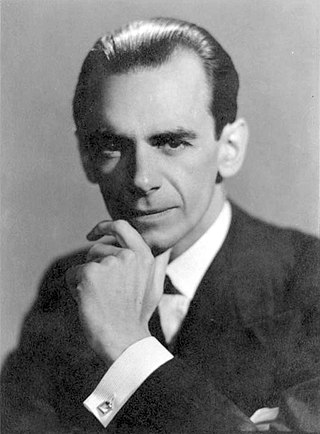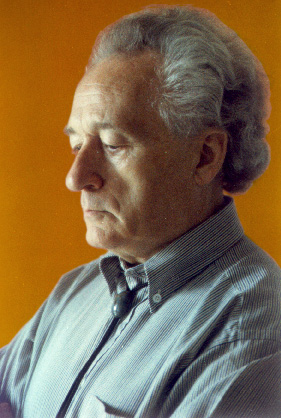Related Research Articles

Sir Harold Malcolm Watts Sargent was an English conductor, organist and composer widely regarded as Britain's leading conductor of choral works. The musical ensembles with which he was associated included the Ballets Russes, the Huddersfield Choral Society, the Royal Choral Society, the D'Oyly Carte Opera Company, and the London Philharmonic, Hallé, Liverpool Philharmonic, BBC Symphony and Royal Philharmonic orchestras. Sargent was held in high esteem by choirs and instrumental soloists, but because of his high standards and a statement that he made in a 1936 interview disputing musicians' rights to tenure, his relationship with orchestral players was often uneasy. Despite this, he was co-founder of the London Philharmonic, was the first conductor of the Liverpool Philharmonic as a full-time ensemble, and played an important part in saving the Royal Philharmonic Orchestra from disbandment in the 1960s.

Trevor David Pinnock is a British harpsichordist and conductor.

Esa-Pekka Salonen is a Finnish conductor and composer. He is the music director of the San Francisco Symphony and conductor laureate of the Los Angeles Philharmonic, Philharmonia Orchestra in London and the Swedish Radio Symphony Orchestra. In 2024, he announced his resignation from the San Francisco Symphony upon the expiration of his contract in 2025.

Georg Christoph Wagenseil was an Austrian composer.

Alun Hoddinott CBE was a Welsh composer of classical music, one of the first to receive international recognition.

Vagn Gylding Holmboe was a Danish composer and teacher.
The Bournemouth Sinfonietta was a chamber orchestra founded in 1968 as an offshoot of the Bournemouth Symphony Orchestra. It was disbanded in November 1999 after increasing difficulties in obtaining funding from local councils led to the decision to concentrate government funding on its larger parent.

Hilding Constantin Rosenberg was a Swedish composer and conductor. He is commonly regarded as the first Swedish modernist composer, and one of the most influential figures in 20th-century classical music in Sweden.

The Violin Concerto No. 3 in B minor, Op. 61, by Camille Saint-Saëns is a piece for violin and orchestra written in March 1880. Saint-Saëns dedicated the concerto to fellow composer-virtuoso Pablo de Sarasate, who performed the solo part at the premiere in October 1880 in Hamburg.

Hans Gál OBE was an Austrian composer, pedagogue, musicologist, and author, who emigrated to the United Kingdom in 1938.

Robert Augustine Irving, DFC*, was a British conductor whose reputation was mainly as a ballet conductor.
Ross Pople is a New Zealand-born British conductor. He is the principal conductor of the London Festival Orchestra. He has worked with Yehudi Menuhin, Clifford Curzon, David Oistrakh, Kentner, George Malcolm, Sir Adrian Boult, Rudolf Kempe, Benjamin Britten, Witold Lutosławski, Krzysztof Penderecki, Michael Tippett, Georg Solti, Leonard Bernstein, George Benjamin, John Casken, Edwin Roxburgh, Luciano Berio, John Tavener, Malcolm Arnold, Pierre Boulez as well as many other major orchestras, choirs and soloists.

Edvin Kallstenius was a Swedish composer and librarian. He arranged the traditional folk tune used as the de facto national anthem of Sweden, Du gamla, Du fria.
Arthur Eckersley Butterworth, was an English composer, conductor, trumpeter and teacher.
Martin Yates is a British conductor. After attending Kimbolton School, he studied at the Royal College of Music and Trinity College of Music, London, where his teachers included Bernard Keeffe (conducting), Richard Arnell (composition), Ian Lake, Jakob Kaletsky and Alan Rowlands (piano), and Douglas Moore and John Burden.
The Suite for Viola and Orchestra by Ralph Vaughan Williams is a work in eight movements for solo viola and orchestra composed in 1933 and 1934. The Suite is dedicated to violist Lionel Tertis, who premiered the work on November 12, 1934 at the Queen's Hall in London under the baton of Malcolm Sargent. A typical performance lasts about 23 minutes.
The Symphony in G minor was the only completed symphony written by Ernest John Moeran. He wrote it in 1934–37. It is in four movements.

Othmar Mága was a German conductor, who was chief conductor internationally, including the Odense Symphony Orchestra in Denmark and the KBS Symphony Orchestra in Korea. Among his many recordings are several rarely played concertos for instruments such as horn and double bass, including works of the 20th century.
Graham Whettam was an English post-romantic composer.
References
- 1 2 3 4 5 6 7 8 9 Cummings, David M. (10 August 2000). International Who's who in Music and Musicians' Directory: (in the Classical and Light Classical Fields). Psychology Press. p. 160. ISBN 9780948875533 . Retrieved 10 August 2020– via Google Books.
- 1 2 3 [ dead link ]
- 1 2 "Moeran: Symphony in G minor; Two Pieces for Small Orchestra - Neville Dilkes | Songs, Reviews, Credits | AllMusic". AllMusic . Retrieved 10 August 2020.
- ↑ "Neville Dilkes | ArkivMusic". Arkivmusic.com. Retrieved 10 August 2020.